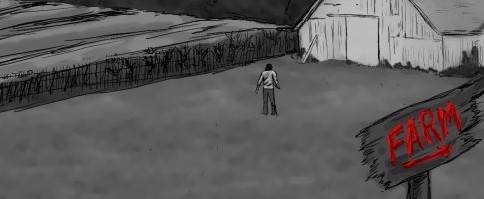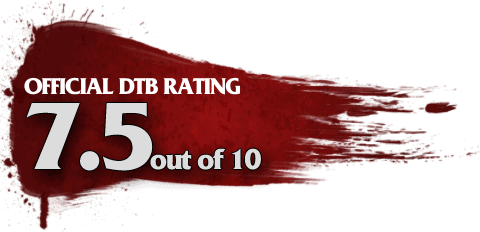Movie Review: ‘FARM’
 The overall look of a film can go a long way in the final product. The construction of a shot or the lighting in the frame can make even the most meager budget films look like Hollywood productions. If a movie looks technically sound, you can make the audience believe just about anything … even a world overrun by a deadly disease. This can all be said of a new film by local St. Louis directors Hank Bausch and Andrew M. Jackson. Through Farm’s serene yet occasionally surprising visuals, these two new directors have created a believable and bleak look at a diseased future.
The overall look of a film can go a long way in the final product. The construction of a shot or the lighting in the frame can make even the most meager budget films look like Hollywood productions. If a movie looks technically sound, you can make the audience believe just about anything … even a world overrun by a deadly disease. This can all be said of a new film by local St. Louis directors Hank Bausch and Andrew M. Jackson. Through Farm’s serene yet occasionally surprising visuals, these two new directors have created a believable and bleak look at a diseased future.
Farm begins with two brothers, Charlie and Simon. Charlie is the older of the two and takes care of his younger brother who lives with a burned face and a missing arm. The film focuses on the survival of the two boys. Holed up in a large farmhouse surrounded by open land, we quickly learn there is a reason why the older brother is so afraid when he goes out to tend to his chickens. The monotony of the boy’s day-to-day lives is broken when Sarah stumbles onto their farm one day. Dirty and exhausted, Sarah comes to the farm looking for help. Unfortunately for the two boys, the girl’s arrival is going to trigger a series of deadly consequences that will effect them both.
One of the first aspects that you will notice about Farm, is the opening melancholy score. Nadine Gleason has created a beautiful and haunting piano score that sets a somber tone to the film. Though the score is overly used (especially in the beginning half), it fits well with cinematographer Evan Kimball Plochmann’s beautiful photography. Like I said previously, one of the highlights of the film is the overall look. Combining simple and delicate shots of the inside of the house with the wide openness of the surrounding farmland, the film has the appearance of an art-house film with an underlying sense of dread. Using very little dialogue, the character’s motives and stories are told through visual cues and expressed through their actions. This is both a positive and a negative in this film. Though I did appreciate the simplicity of the characters, I would have liked a little more dialogue and motives to their actions. All of the actors in Farm do a good job with what little they have to work with. Michael Hotop does an excellent job displaying the burden Charlie must feel taking care of his brother and the constant uneasiness he feels due to the scary surroundings. For me, the main downfall to the film is the ending. At a run-time of 72 minutes, Farm takes its time in the first 50 minutes building tension and showcasing the characters. Unfortunately, it rushes to wrap up everything after a successful action sequence towards the end of the film. In less than ten minutes, a series of events occurs that would have had much more of an impact if it didn’t seemed so rushed to get through it. Because of this, when the film does end, you are left wanting more. I only wish the directors and writer would have taken their time to more fully explore the ending.
Though this is a “zombie movie,” you would never be able to tell from looking at it on the surface. Avoiding the cliches associated with the genre, Farm manages to focus on the humans trying to survive in the situation instead of displaying senseless scenes of gore. Though the film does inject some zombie carnage into it, Hank Bausch and Andrew M. Jackson seem to be more interested in telling a film about day-to-day survival. In doing so, they have created characters you actually care about … not just some that you are waiting to see get killed in a “creative” way. These two directors will certainly be on my radar for directors to look forward to in the future. Looks can go a long way in a film, but thankfully Farm also has the heart to go with it.
For more info on this unreleased independent feature, you can head to the film’s website by clicking here.

